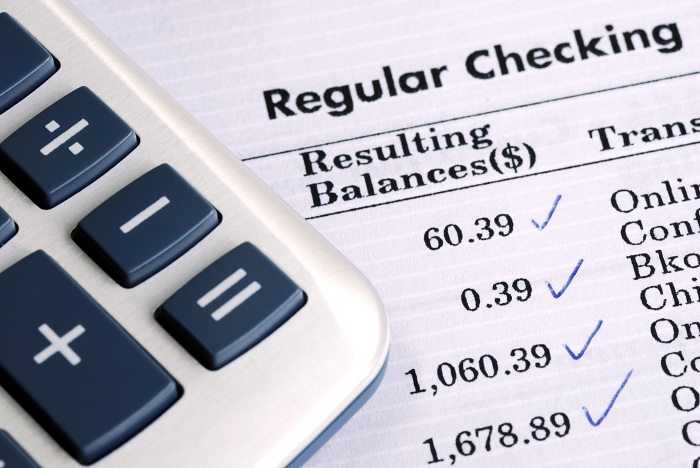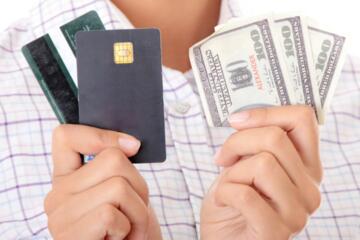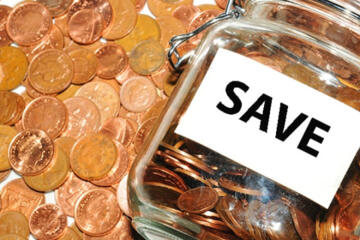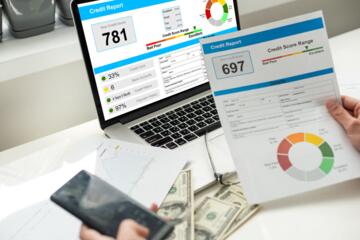Checking accounts are a special type of bank accounts that let you access deposited money with relative ease. It also allows for frequent deposits and withdrawals, making it an ideal choice for recurring or everyday purchases. However, this flexibility comes at a price, as this account type pay low-interest rates, unlike CDs (certificate of deposit) and other types of account that enable you to grow your cash. Therefore, it is best to keep only the money you will like to access easily in your checking account, while others go into accounts with huge earning potentials.
There are certain things you need to know before opening a checking account. For example, the various types of checking account and the practical aspects of managing one – like how to balance a checking account, write a check, and so on. Here is a detailed guide to help you choose and maintain a checking account.

Sponsored Listings
Free Checking Account and Eligibility
Gone are the days when free checking accounts came across as the norm. Nowadays, only 38 percent of banks are offering this type of account compared to 78 percent a decade ago. Free checking accounts are more likely to be available at online banks, credit unions, community banks than your traditional bank. A free checking account no need for a minimum balance requirement or monthly maintenance fee whatsoever. You may, however, need to pay for overdraft fees and other charges.
Many banks offer free checking to customers who register for e-statements or those with direct deposit, allowing their employers to send in their paycheck directly as and when due. However, note that the minimum direct deposit balance may be around $250 every month and that you stand a risk of losing the account if your balance falls below the threshold or the direct deposits come to an end.
Interest-bearing Checking Accounts
You get interests on money deposited into your interest-bearing checking account the same way you would on a savings account. But on the contrary, you will still be able to make purchases and foot bills with your debit card or check.
Few banks offer this type of account and it comes with monthly maintenance fee, minimum balance requirements, and other conditions, like the number of transactions that can be made per month via debit cards. The fees paid fall within 0.01 % – 0.05%, interest rates vary from bank to bank and Credit unions offer the best rates.
Premium Checking Account and Eligibility
Though the perks vary by bank, Premium account offers you more benefits than a standard account. These exclusive benefits can include waived fees, interest payments, discounts on other bank’s products, and free financial advice. Some banks even give customers redeemable reward points for their transactions.
As expected, the minimum balance required for premium accounts is higher than that of standard accounts. Your minimum balance per day has to be $2500 to qualify for a premium account. You may also be considered if you have a combined balance of up to $10000. Remember that you will have to pay a monthly fee if your account balance falls below these thresholds.
Lifeline Checking Account
Also known as a basic account, this type of checking account is specially designed for low-income earners. It has zero monthly maintenance fee and low minimum balance. Lifeline checking account often includes basic features, like check writing, although there may be limitations on the number of transactions allowed each month.
Second Chance Checking Account
This type of account offers people who have been denied a checking account, whether due to bad credit score or past banking mistakes, a second chance. Monthly fees are typically waived for this account type and owners may be asked to attend a money management class or set up direct deposit. Considering fees and convenience, second chance checking accounts are preferable to using cash checking services or debit cards.
Joint Checking Account
This is a bank account owned by two or more people, usually business partners or family members. It is similar to a standard account except that each account holder is free to deposit or withdraw from the account. Joint checking accounts are common for married couples, teenagers and their parents, as well as grownups who are managing the finances of their older relatives.
Student Checking Account
Student accounts differ from standard accounts in that the minimum balance and monthly fee is usually on the lower side. For instance, students get a monthly fee waiver or discounts on monthly maintenance fee, at the very least. It is typically available to students between 17 to 24 years of age.
Checking Accounts and How to Use Them
A check, also spelled cheque, is a document ordering the bank to pay a certain amount of money to the person whose name appears on it. Writing a check can be easy as pie or confusing, depending on if you are doing it for the first time or not. Below are easy-to-follow steps on how to write a check.
- Fill out the date
- Put in the name of the company or individual you want to send money to on the line next to “PAY TO THE ORDER OF”
- Write the amount in numbers in the boxes
- Then, enter the amount in words on the next line
- Append your signature on the line at the bottom right of the check
ATM Or Debit Cards
Debit cards allow you to easily pay for your expenses with the money in your checking account. The difference between credit and debit card is that your account will instantly be debited after making a purchase. ATM transactions require a pin that you will set, and you may be charged for using another banks’ ATM network.
Overdraft Protection
Overdraft protection allows you to spend more money than you have in your checking account in exchange for a fee, which could amount to about $35 on each transaction. To avoid paying an overdraft fee, you can either link your checking account to your savings account or opt out of overdraft protection if you already opted in.
How to Balance a Checking Account
Balancing your checkbook is a basic way to manage your checking account. You will need to keep records of the amounts and dates of debit card purchases and withdrawals, and then do the math to ensure both the statement and your account balance matches up. Doing this will prevent you from overdrawing your account and incurring avoidable fees as a result.
Conclusion
What is not to love about checking accounts? They are flexible, easy to maintain, have low maintenance fee and even pay interests in some cases. However, there are various types of checking accounts, each varying in perks, requirements, and limitations. As such, in-depth knowledge of these account types will help your final decision.
Disclaimer: Our service is not intended to be, nor should it be construed as financial advice. We help our readers make informed decisions via impartial information and guides. Where appropriate, we may introduce partner companies who can provide services relating to financial products.












